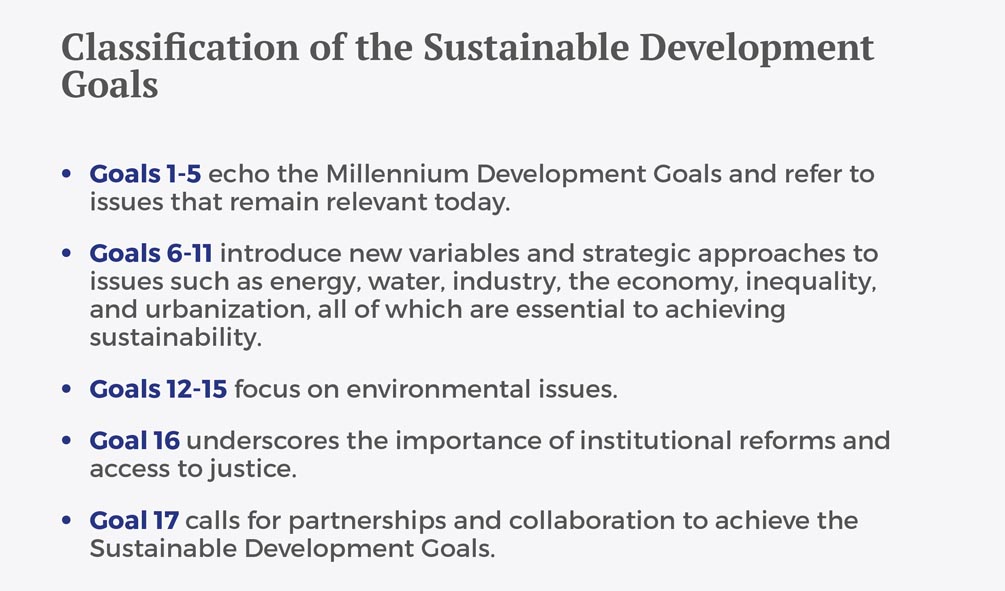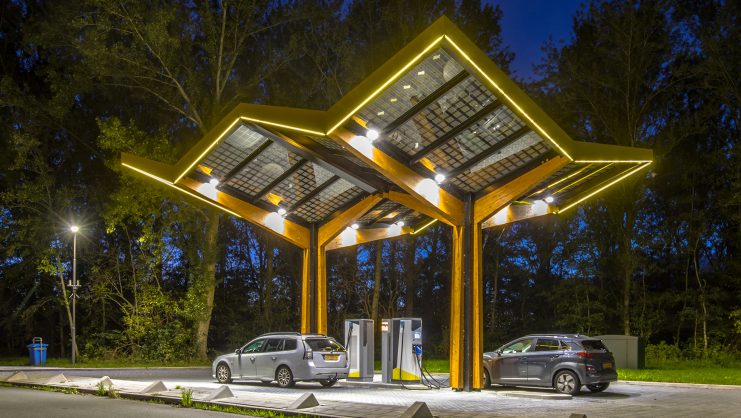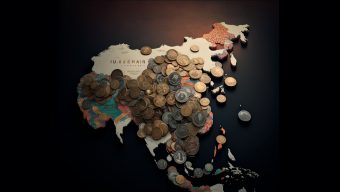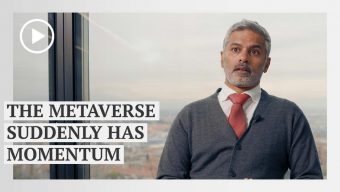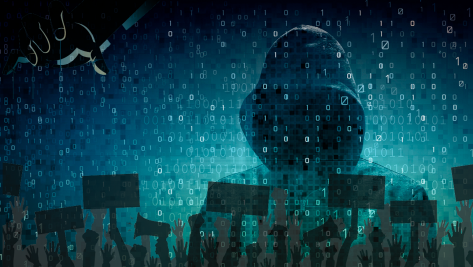Between 2000 and 2015, the Millennium Development Goals (MDGs) had a major impact on rates of poverty—especially extreme poverty—all over the world. However, this achievement is uneven and unfinished, since major imbalances remain and new global challenges have come to the fore.
Urgent action is needed on the part of the global community. UN Secretary-General António Guterres has identified five megatrends that are reshaping how we work and live: urbanization, climate change, protracted crises and conflicts, cutting-edge technologies, and demographic changes (which take different forms in industrialized nations and the Global South).
This outlook, combined with the need to balance economic, social, and environmental policies and actions, gave rise to the Sustainable Development Goals (SDGs), which were unanimously endorsed by the UN General Assembly in 2015.
Since then, the international community has turned its attention to the severe gender gaps in poverty levels and the yawning inequalities in access to clean water, electricity, and other services that influence dignity and quality of life. Climate change and the protracted conflicts raging in many countries have only made it more difficult to address these problems.
The SDGs and the 2030 Agenda pick up where the MDGs left off, serving as a strategic guide for governments and organizations alike. The SDGs are much more ambitious than the MDGs, since they apply to all countries, not just the developing world. Environmental protections, social inclusion, and economic development must be measured under a single rubric of sustainability.
Major imbalances remain and new global challenges have come to the fore.
Not a new term
The notion of sustainability vastly predates the SDGs. In psychology, it has been defined as “the harmony of living with nature.” Sustainability also underpinned some of the oldest known farming methods, including those of ancient China, which stressed the importance of resource regeneration and boasted a vision and values oriented towards future generations.
In his 1968 essay “The Tragedy of the Commons,” Garrett Hardin argued that long-term sustainability is not possible in a shared-resource system like ours if each individual acts in his or her own interest.
These reflections informed the concept of sustainable development, defined in 1987 by the UN World Commission on Environment and Development—also known as the Brundtland Commission—as “the kind of development that meets the needs of the present without compromising the ability of future generations to meet their own needs.”
Towards a circular, solidarity-based economy
Beyond environmental protection, sustainable development calls for a broader paradigm that encompasses economic transformation, political action, and of course business activity. Any growth must be consolidated in a cyclical—as opposed to linear—manner: the final product and any waste generated must serve as the starting point for new products or services, without creating new waste or exhausting resources. Sustainable development, therefore, is clearly oriented towards creating a circular, solidarity-based economy that increases people’s well-being without overextending the planet.
Environmental protections, social inclusion, and economic development must be measured under a single rubric of sustainability.
The importance of data
To redress the inequalities within and between countries, we need better itemized and qualitative data on outcomes for different population groups to help us understand the underlying causes. Better data collection and interpretation capacities are needed at the national level, and data-protection policies will have to be developed through active and informed social discussion.
On the basis of these reflections, the 2030 Agenda can serve as a holistic, universal, unifying guide for all countries to follow, even as they tailor their contributions to their specific contexts. It is a guide with a vision and principles—reflected in the official manifesto—and a structure set out in the SDGs. The implementation of the goals requires collaboration and coordination, with each organization and each industry enriching the agenda through its particular knowledge.
Any proposal or project relating to sustainable development must further the global transformation sought by the UN member states, particularly in relation to the five Ps: people, prosperity, peace, partnership, and planet. These key themes capture the essence of the SDGs, integrating social, economic, and environmental aspects with the need to cultivate partnerships and develop long-term governance mechanisms.
© IE Insights.




